Health & Medicine
-
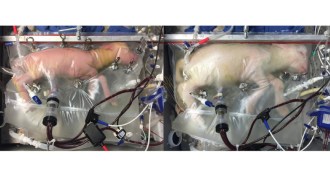 Tech
Tech50 years ago, lambs survived but didn’t thrive inside artificial wombs
Artificial wombs to support preemie babies are closer to reality.
-
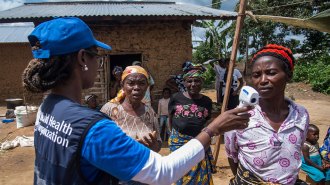 Health & Medicine
Health & MedicineWHO declares a public health emergency over Congo’s Ebola outbreak
The yearlong Ebola outbreak in the Congo has been declared a public health emergency by the World Health Organization.
-
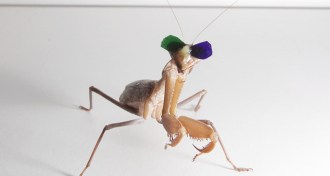 Health & Medicine
Health & MedicineTiny glasses help reveal how praying mantises can see in 3-D
Newfound nerve cells in praying mantises help detect different views that each of the insects’ eyes sees, a mismatch that creates depth perception.
-
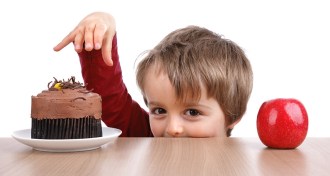 Health & Medicine
Health & MedicineToddlers tend to opt for the last thing in a set, so craft your questions carefully
Two-year-olds demonstrate a verbal quirk that makes their answers less reliable.
-
 Health & Medicine
Health & MedicineBreaking down the science behind some of your favorite summer activities
Inject some science into your summer.
-
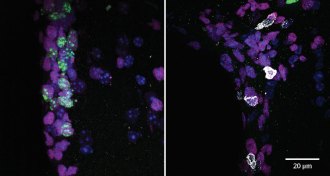 Health & Medicine
Health & MedicineRogue immune cells can infiltrate old brains
Killer T cells get into older brains where they may make mischief, a study in mice and postmortem human brain tissue finds.
-
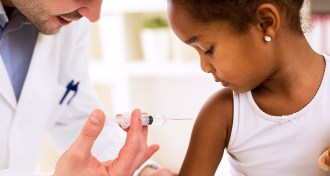 Health & Medicine
Health & MedicineCalifornia’s new vaccine rules kept more kindergartners up-to-date
Three statewide interventions improved the rates of kindergartners behind on required vaccinations in California, researchers report.
-
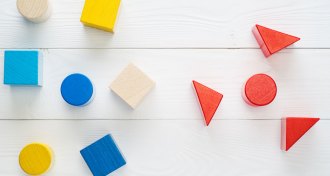 Health & Medicine
Health & MedicineVision cells can pull double duty in the brain, detecting both color and shape
Neurons in a brain area that handles vision fire in response to more than one aspect of an object, countering earlier ideas, a study in monkeys finds.
-
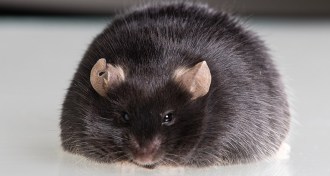 Health & Medicine
Health & MedicineIn mice, a high-fat diet cuts a ‘brake’ used to control appetite
A fatty diet changes the behavior of key appetite-regulating cells in a mouse brain.
-
 Health & Medicine
Health & MedicineAntioxidants may encourage the spread of lung cancer rather than prevent it
Antioxidants protect lung cancer cells from free radicals, but also spur metastasis, two new studies suggest.
-
 Health & Medicine
Health & MedicineThick calluses don’t make feet any less sensitive
Bare feet that develop thick calluses are just as sensitive as shoe-clad feet, a study in Kenya finds.
-
 Health & Medicine
Health & Medicine3-D mammograms are popular, but are they better than 2-D?
The use of digital breast tomosynthesis, a newer breast cancer screening technology with limited evidence, has risen in recent years.